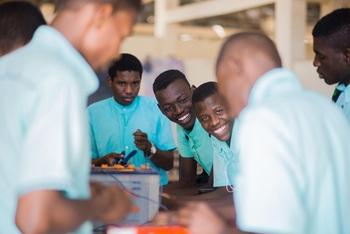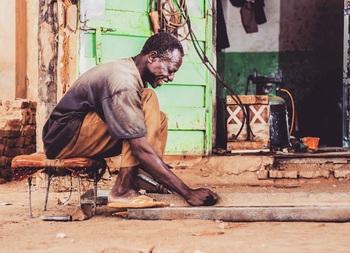Context
Eastern Sudan is a post-conflict region and one of the poorest and most underdeveloped regions in the country. The causes of the ten-year armed conflict in eastern Sudan were only partially resolved by the 2006 Peace Agreement, so peace remains fragile. The lack of natural resources for agriculture and of education and training opportunities in the trades and small-scale business sector means that a large part of the population has no prospects. Young men and women in particular do not have the necessary skills to gain a foothold on the labour market.
At the same time, Sudan is a transit, target and home country for migrants and refugees. A substantial proportion of the 924,000 refugees in Sudan, as well as many asylum seekers, live in the eastern states of Kassala and Gedaref. The refugees in the region are not sufficiently integrated socially and economically, which is placing a great burden on the labour market and the host communities in general. As a result, neither the refugees nor the host communities are able to improve their living conditions.
Objective
The living conditions of host communities and refugees in the states of Kassala and Gedaref have improved.
Approach
To provide young people with job prospects, the Deutsche Gesellschaft für Internationale Zusammenarbeit (GIZ) GmbH is providing vocational training in the trades and small-scale business sector and is helping to develop local business. In this context, GIZ is gearing its efforts to labour market needs and employment potential for the local population and refugees. With GIZ’s support, two training colleges are offering vocational training courses in line with labour market demand, such as short introductory courses and a one-year dual course in four different occupations. These are providing at least 500 young men and women the chance for a better future.
To help local businesses create training places and jobs, specific training measures have been put in place for 50 local small enterprises. Training is enabling private business associations to meet their members’ needs for more advanced technical and business skills; this will enable new jobs to be created locally.
This trilateral project is being implemented under the auspices of the Intergovernmental Authority on Development (IGAD).

